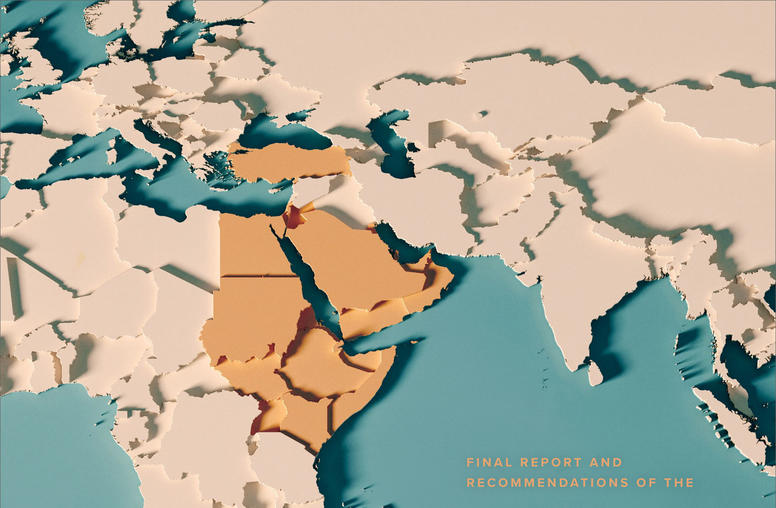Unraveling the Geopolitical Impact: Red Sea Dynamics


Navigating Global Politics: The Geopolitical Impact of Red Sea Dynamics
The Red Sea, with its strategic location connecting Asia, Africa, and Europe, has become a focal point for geopolitical maneuvering. Nations surrounding this vital waterway are actively shaping the geopolitical landscape, influencing global dynamics in the process. This article explores the multifaceted geopolitical impact of Red Sea dynamics and their implications for international relations.
Strategic Significance: The Red Sea as a Global Chokepoint
The strategic significance of the Red Sea cannot be overstated. Serving as a global chokepoint, it facilitates the movement of goods, energy resources, and naval assets. Countries bordering the Red Sea, such as Egypt, Saudi Arabia, and Yemen, leverage their geographical advantage to assert influence and contribute to the geopolitical jockeying in the region.
Naval Buildups and Power Projection: Shaping Maritime Strategies
Naval buildups along the Red Sea have become a means for nations to project power beyond their immediate borders. The development of naval capabilities by regional actors introduces new dimensions to maritime strategies. This power projection not only influences regional security but also reverberates in global naval dynamics, contributing to the evolving balance of power at sea.
Proxy Conflicts and Regional Rivalries: Unraveling Complex Alliances
The Red Sea region has become a theater for proxy conflicts and regional rivalries. Ongoing conflicts in Yemen and the involvement of external actors contribute to the complexity of alliances and enmities. Understanding these dynamics is essential for deciphering the geopolitical landscape, as nations align themselves based on strategic interests, historical ties, and geopolitical considerations.
Resource Competition: The Battle for Economic Dominance
The Red Sea’s economic significance extends beyond its role as a maritime route. Rich in natural resources, including oil and gas reserves, the region becomes a battleground for economic dominance. Nations seek to secure access to these resources, driving competition and influencing economic dynamics not only within the region but also on a global scale.
Security Concerns and Regional Stability: A Delicate Balance
The heightened geopolitical activities in the Red Sea raise concerns about security and regional stability. The delicate balance between asserting national interests and avoiding conflicts that could escalate into wider confrontations requires careful navigation. The potential for miscalculations and unintended consequences adds complexity to an already volatile geopolitical environment.
Impact on Global Trade: Navigating Economic Waters
As geopolitical tensions simmer in the Red Sea, the impact on global trade cannot be ignored. Disruptions to maritime routes, increased security risks, and the potential for conflicts to spill over into trade routes pose challenges for international commerce. Navigating these economic waters requires a comprehensive understanding of the geopolitical forces at play.
Humanitarian Consequences: The Toll on Civilian Populations
Beyond geopolitical considerations, the Red Sea’s dynamics have humanitarian implications. Ongoing conflicts and geopolitical maneuvering contribute to the suffering of civilian populations. Humanitarian organizations face challenges in delivering aid, and the international community grapples with the ethical dimensions of geopolitical decisions impacting vulnerable communities in the region.
Environmental Vulnerabilities: Safeguarding Ecosystems Amidst Tensions
The Red Sea’s unique marine ecosystems face environmental vulnerabilities amidst geopolitical tensions. Naval activities, potential oil spills, and the use of unconventional weapons pose threats to the delicate balance of the region’s biodiversity. Safeguarding these ecosystems requires international cooperation and responsible geopolitical decision-making.
Geopolitical Impact of Red Sea: A Comprehensive Analysis
For an in-depth analysis of the geopolitical impact of Red Sea dynamics, including insights into regional alliances, security challenges, and economic implications, refer to Geopolitical Impact of Red Sea. This comprehensive analysis explores the nuanced layers of the geopolitical landscape, providing valuable perspectives on the evolving dynamics in this strategically vital region.
Conclusion: Charting a Course for Diplomacy and Cooperation
As nations continue to navigate the geopolitical complexities surrounding the Red Sea, diplomacy and international cooperation emerge as imperative tools for mitigating tensions. Charting a course that promotes stability, addresses security concerns, and fosters economic cooperation is essential for a harmonious and secure future in this crucial geopolitical hotspot.







